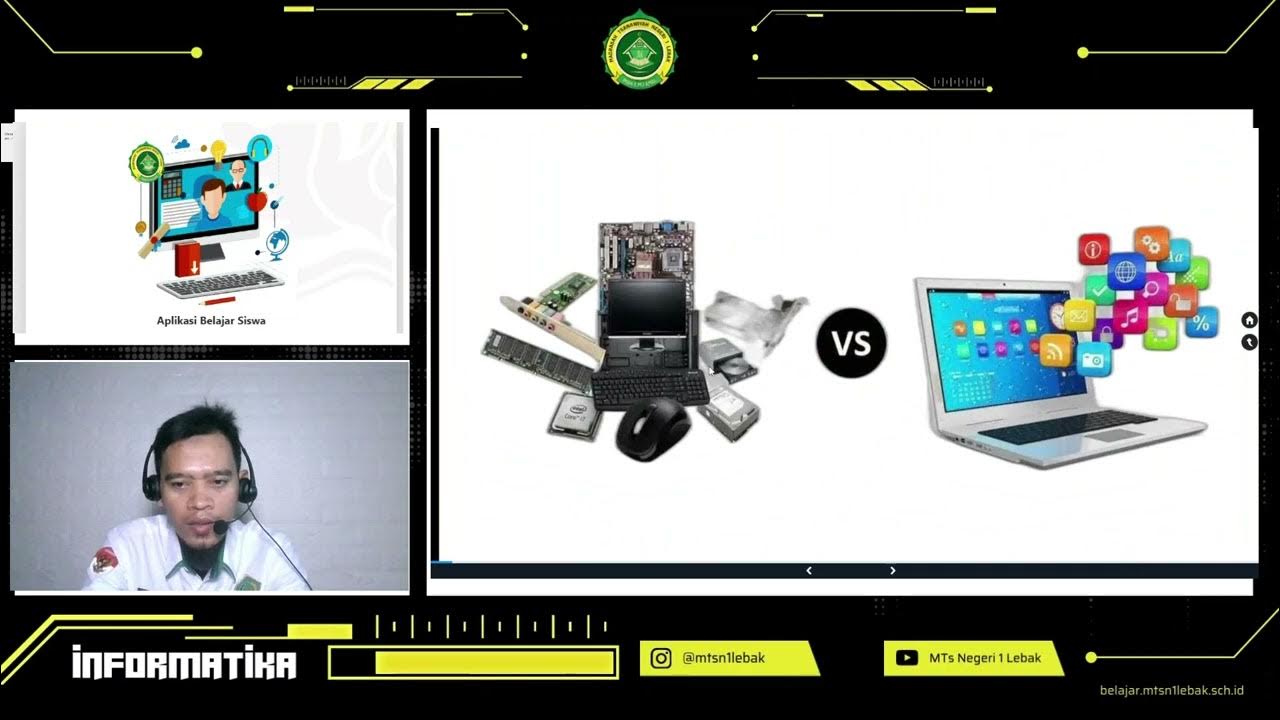Introduction to Databases
Summary
TLDRThis script introduces the fundamental concepts of database systems, aimed at computer science and technology students. It explains databases as interrelated data collections, emphasizing the importance of relationships between data points. The script covers the role of Database Management Systems (DBMS) in handling databases efficiently, ensuring data storage, visualization, querying, and manipulation. It also highlights the advantages of DBMS over traditional file systems, such as reducing redundancy and inconsistency, ensuring data integrity, supporting atomic operations, allowing concurrency, and providing security measures. The overview sets the stage for further exploration of the relational data model in subsequent modules.
Takeaways
- 📚 The course is an introduction to Database Systems, primarily for Computer Science and Engineering students as part of their undergraduate curriculum.
- 🔍 A database is defined as a collection of interrelated data, emphasizing the importance of the relationships between data points, not just the data itself.
- 🏢 The script gives an example of how an institution might use a database to organize records of various entities such as teachers, students, courses, etc.
- 💼 The Database Management System (DBMS) is described as a system that provides an environment to handle a database, with capabilities for data storage, visualization, querying, and manipulation.
- 🔄 The DBMS addresses issues of data redundancy and inconsistency by ensuring data is stored in one place, thus avoiding multiple copies and potential discrepancies.
- 🔒 Data isolation is highlighted as a feature of DBMS where data is stored in a binary format, accessible only through a database interface, protecting it from unauthorized direct access.
- 🛡️ Data integrity is a key aspect of DBMS, where it enforces rules and constraints to ensure the accuracy and consistency of the data, such as valid ranges for academic grades.
- 💰 The script uses the example of a bank transfer to illustrate the concept of atomicity in database operations, where a transaction is either fully completed or not done at all.
- 👥 Concurrency is explained as the ability of a database to handle multiple operations simultaneously without conflict, ensuring that operations on the same data are coordinated.
- 🔒 Security is a critical feature of DBMS, with mechanisms to protect data and control access at various levels, such as restricting unauthorized access to employee records or allowing students to update their own addresses but not their grades.
- 🔑 The script concludes by emphasizing the importance of these DBMS features over a traditional file system, highlighting the benefits of using a DBMS in managing complex and sensitive data.
Q & A
What is the primary function of a database?
-A database primarily serves as a collection of interrelated data, where data fields or points have some form of relationship with each other.
Why is the Database Management System (DBMS) essential?
-DBMS is essential because it provides an environment to handle a database efficiently and conveniently, including programs and interfaces for data storage, visualization, querying, and manipulation.
What are the four main operations of a DBMS?
-The four main operations of a DBMS are data storage, data visualization, data querying, and data manipulation.
How does a database differ from a simple file system in terms of data redundancy and inconsistency?
-A database reduces redundancy and inconsistency by storing each piece of data in one place only, unlike a file system where the same data might be stored in multiple files, leading to potential inconsistencies.
What is data isolation and why is it important in a database?
-Data isolation refers to the use of a standard format for data and a single interface for data access, which simplifies the process for end-users regardless of the underlying data format.
Why is data integrity crucial in a database?
-Data integrity is crucial because it ensures that the data adheres to certain semantic rules or validity constraints, preventing incorrect or invalid data from being entered into the database.
What is the significance of atomicity in database operations?
-Atomicity ensures that database operations are treated as a single unit, which either completely succeeds or completely fails, maintaining the consistency and reliability of the database.
What does concurrency in databases mean and why is it important?
-Concurrency in databases means that multiple processes can occur simultaneously without interfering with each other, provided there is no conflict over specific data items, thus improving efficiency and performance.
How does a database system ensure security of data?
-A database system ensures data security by implementing measures such as restricting access to authorized users only and providing attribute-level security to control access to specific data fields within records.
What are the six key advantages of a DBMS over a file system as discussed in the script?
-The six key advantages are reducing redundancy and inconsistency, ensuring data isolation, maintaining data integrity, supporting atomic operations, allowing concurrency, and providing security.
Can you provide an example of how a database system might be used in an educational institution?
-In an educational institution, a database system could be used to store and manage records of various units such as teachers, students, employees, courses, and other related information, all within a single, interconnected database.
Outlines

This section is available to paid users only. Please upgrade to access this part.
Upgrade NowMindmap

This section is available to paid users only. Please upgrade to access this part.
Upgrade NowKeywords

This section is available to paid users only. Please upgrade to access this part.
Upgrade NowHighlights

This section is available to paid users only. Please upgrade to access this part.
Upgrade NowTranscripts

This section is available to paid users only. Please upgrade to access this part.
Upgrade NowBrowse More Related Video

ADBMS: Unit 1: Lecture 1: Database Concepts, Introduction to Transaction Control Language.

BAB 4 SISTEM KOMPUTER | MULTITASKING | INFORMATIKA SMA KELAS 10 | KEMENDIKBUD

KPPSC Computer Operator paper (06-04-2019) Complete solved: part 01

Why DBMS?/1

Pengenalan Materi Informatika - Kelas X Semester Ganjil

Materi Sistem Komputer - Informatika
5.0 / 5 (0 votes)